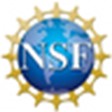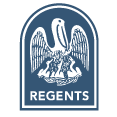Overview
Louis Stokes Louisiana Alliance for Minority Participation (LS-LAMP) at Southern University and A&M College in Baton Rouge (SUBR), Louisiana
Since the inception of LS-LAMP in 1995, Southern University and Agricultural and Mechanical College in Baton Rouge (SUBR), Louisiana, has been the lead institution for this successful alliance. In addition to SUBR, this Senior Level Alliance consists of 14 partner educational institutions and one (1) research organization. Dr. Patrick Mensah, Formosa Endowed Professor of Mechanical Engineering in the College of Sciences and Engineering (CSE) at SUBR, is the Statewide LS-LAMP Project Director and the SUBR Campus Coordinator. Dr. Diola Bagayoko proudly served in this capacity until his retirement in June of 2019. The Late Dr. Ella L. Kelley was the Campus Coordinator for SUBR and a Co-Principal Investigator of LS-LAMP until her untimely passing in July 2015. The Statewide Management Office is housed at SUBR. LS-LAMP employs a rigorous, evidence-based systemic mentoring model with components for innovative recruitment, engagement, retention, progression, evaluation, student tracking, and dissemination.
The overarching goal of LS-LAMP is to significantly increase the number and quality of minority students earning a Bachelor of Science (BS) degree in a science, technology, engineering, and mathematics (STEM) discipline and to guide a growing number of our STEM BS degree holders to the pursuit of Doctor of Philosophy (Ph.D.) degrees in STEM or stimulating high technology careers. The overall success of this alliance has been achieved through the adoption and institutionalization of the US Presidential Award-Wining Ten-Strand Systemic Mentoring Model. The provision of financial assistance (when available), scientific advisement, communication skills enhancement, tutoring activities, and generic scholarly (or research) activities are the first five (5) strands of the model. The last five (5) are the execution of specific research projects, immersion in a professional culture, technical and technological skills enhancement, monitoring (in part with a portfolio), and guidance to graduate school or to the job market. The collective undercurrent of these ten strands practically guarantees a scholar’s academic, social, and professional integrations. In what follows, we succinctly provide quantitative results of the successful immersion of our scholars in a professional and emerging culture. (The proceeding numbers of scholars participating in the following systemic mentoring activities are not necessarily distinct students in that some scholars participated in all activities during each reporting year.)
The excellent and holistic implementation of this model on the SUBR campus has been illustrated in the following areas. From 2000 to the present, forty-five (45) former SUBR LS-LAMP scholars earned a Ph.D. degree in a STEM field. These students were all awarded STEM BS degrees from SUBR. Since 2000, more than 1,391 scholars have been immersed in a professional culture by attending at least 30 seminars per academic year. These do not include additional meetings with visiting professors and undergraduate and graduate school recruitment sessions. In line with ensuring a Scholar’s professional and social integrations, a total of 1,832 scholars have attended conferences around the country. As a means of effectively enhancing their communication skills, 818 scholars gave oral or poster presentations of their technical research at these conferences. Since the summer of 2000, five hundred sixty-nine (569) scholars have been selected competitively to conduct summer research around the country and, in some cases, internationally, at federal and university laboratories and at high-technology companies.
During the last 28 years, over 952 scholars have received direct financial support from LS-LAMP. This support guarantees the use of the resulting "time dividend" for their studies, research, and related enrichment activities on a full-time basis. To promote superior teaching, mentoring, and learning (TML) and a sense of self-worth, scholars have engaged in peer tutoring and volunteerism efforts at the university and in their respective communities since 2000. Our comprehensive monitoring of current and former scholars includes the maintenance and updating of a mentoring portfolio. This portfolio is a pivotal factor in ensuring the comprehensiveness of our exemplary implementation of systemic mentoring. It is an essential tool for follow-up and for writing substantive letters of recommendation.
LS-LAMP is funded by the National Science Foundation (NSF) and the Louisiana Board of Regents.
 |
 |
